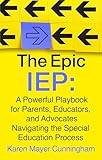The Truth About High School Diplomas with Accommodations
Q: My child’s teacher says if they provide *any* modifications for my child, she won’t be able to graduate with a regular diploma. Is this true?
Answer:
A.C.E. Your IEP Record Keeping: Accommodations, Modifications and Scaffolding Quick Log: Red (A.C.E. Education: Teacher Professional Development Resources)
$8.99 (as of 18 December 2025 20:29 GMT -05:00 - More infoProduct prices and availability are accurate as of the date/time indicated and are subject to change. Any price and availability information displayed on [relevant Amazon Site(s), as applicable] at the time of purchase will apply to the purchase of this product.)There is a fine distinction between modifications and accommodations. Modifications DO affect graduation outcomes. Accommodations should not affect the type of diploma your child receives. Therefore, it’s important to understand the difference between the two.
High School Diploma with Modifications
Modifications are changes to the actual content your child must learn. In other words, she doesn’t have to learn the same things as the other children. If your child does not learn the same things as other students, he may only receive a certificate of attendance or a special education diploma.
If your child is receiving proper remedial instruction for Learning Disabilities such as ADHD, Aspergers, dyslexia, or another learning disability, any modifications made to instruction SHOULD only be temporary. Modifications are only put in place until the child can work on grade level.
If your child’s remediation is properly provided and intense enough, he’ll make good educational progress. Your child should eventually have no need for modifications. The receipt of modifications in elementary or middle school should have no affect on your child’s high school diploma.
The BIG trick here is helping your child SUCCESSFULLY gain skills in a timely manner. Your child has to have intense services so that modifications are unnecessary during high school.
Staying on Track for A High School Diploma with Accommodations
Accommodations do not change the level of instruction your child is receiving. They do not provide a reduction in assignments. Accommodations are changes to ways of presenting the SAME information in a viable way for your child. Accommodations also provide alternative methods for a child to convey her knowledge.
Examples of accommodations include untimed tests, having a test given orally, having a scribe for taking notes, having extended time for assignments, allowing for typing of assignments rather than writing by hand, and having content read to your child.
Accommodations use the SAME curriculum the other children have and makes that same instruction accessible to a child with a disability. Your child still has to learn the same content as other children and will be eligible for a regular high school diploma even if she uses accommodations throughout high school.
Aldine Speller, Part Three: For Grades Five And Six (1921)
$28.28 (as of 18 December 2025 20:29 GMT -05:00 - More infoProduct prices and availability are accurate as of the date/time indicated and are subject to change. Any price and availability information displayed on [relevant Amazon Site(s), as applicable] at the time of purchase will apply to the purchase of this product.)Accommodations for spelling on a vocabulary tests are made because your child KNOWS the word.. The true point of vocabulary words is for the child to know the word and what it means.. Not necessarily spelling. Not counting off for spelling is a COMMON accommodation for children with dyslexia. Your child may use a Franklin Speller to find the correct spelling of words.
Making Sure Your Child Receives A High School Diploma with Accommodations
What your child needs, and you SHOULD advocate for is “Accommodations.” Accommodations make instruction and expression accessible to a child with learning disabilities. They help your child perform at her level of cognitive ability.
Modifications can result in your child receiving less than a regular diploma.. usually a “Certificate of Attendance” or a “Special Education Diploma,” so you really don’t want your child to have modifications. For additional information, take a look at the Accomodations and Modifications section of our Free Online IEP training.
To find specific accommodations that might help your child, you may want to visit the PACER Center parent training and information center at www.pacer.org or look at their PDF list of “School Accommodations and Modifications“.
Best Wishes,
Sandy







